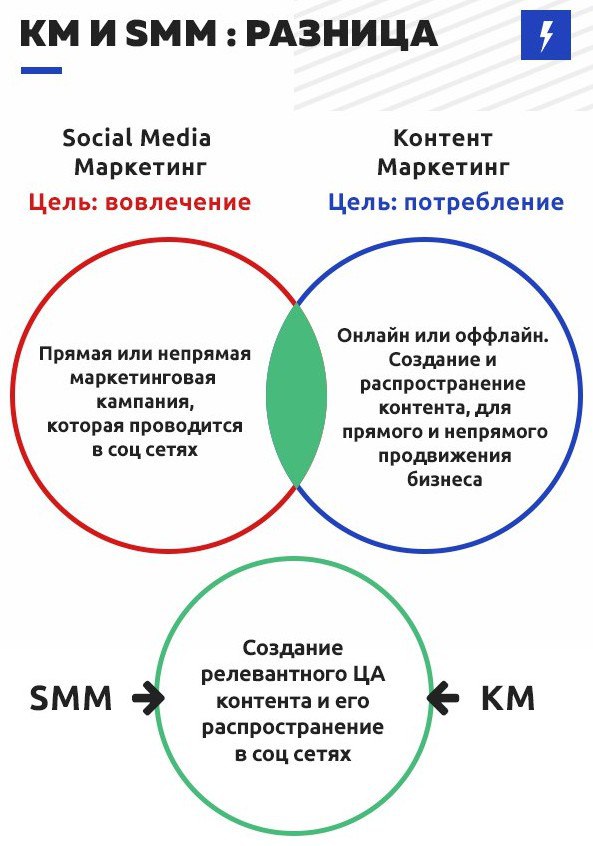What is SMM?
Social media marketing (SMM) is the process of promoting a brand, product, or service through social media platforms such as Facebook, Instagram, Twitter, and LinkedIn. The primary goal of SMM is to attract and engage with a target audience, and increase brand awareness. SMM involves content creation, campaign management, and performance analysis. SMM is an essential part of the marketing strategy for most companies, as social media allows for reaching a wide audience and engaging effectively with them.
Who needs SMM?
Who needs SMM? The answer is obvious: all companies and brands that want to successfully promote their business online. Below are a few statistical examples demonstrating why SMM is essential for business:
- Over 4.5 billion people worldwide use the internet, representing over 591,000 of the world's population. More than 3.6 billion people actively use social media.
- Statistics show that over 90% companies use social media to promote their brand.
- The average social media user spends more than 2 hours a day on them.
- Over 50% social media users use them to search for products and services.
- More than 70% millennials (people born between 1981 and 1996) use social media to learn about brands and their products.
- 60% Instagram users say they learned about a new product or service through the social network.
Ultimately, it can be concluded that SMM is essential for any business that wants to successfully promote itself online and attract new customers. Statistics show that social media is a powerful tool for connecting with target audiences and promoting products and services.

SMM Goals: From Point A to Point B
Social media has become one of the most popular marketing channels in recent years. SMM not only helps companies and brands engage with potential customers but also strengthens their image and brand loyalty. However, to use social media effectively, clearly defined goals are essential.
Business goals
Business goals are objectives that are directly related to the results an organization wants to achieve. These goals typically have a monetary value. They may include:
- Increase sales
- Increase in profits
- Increasing market share
- Increase in the number of orders
- Increasing the number of leads
- Improving ROI (return on investment)
- Cost reduction
Business goals are typically measured numerically and linked to specific results. For example, increasing sales by 10% in 3 months.
Marketing objectives
Marketing objectives are part of broader business goals and are directly related to marketing efforts. These goals typically focus on attracting new customers, retaining existing ones, and increasing brand awareness. They may include:
- Increasing website traffic
- Increasing the number of followers on social media
- Increasing the number of comments and likes
- Increase in the number of buyers
- Increasing the number of reactions to advertising
- Increasing brand awareness
- Improving brand reputation
Marketing goals are typically measured using metrics such as conversion rates, engagement rates, etc.
Communication goals
Communication goals in SMM are aimed at establishing and maintaining contact with the audience. These goals help improve a company's image and increase loyalty among potential and current customers. In this case, the primary focus is on creating a positive brand impression, establishing trust, and ensuring a high level of communication between the brand and its audience.
Examples of communication goals in SMM may include:
- Increase the number of subscribers and comments on social networks.
- Engage with your audience through comments and direct messages.
- Answers to questions and feedback from clients.
- Organizing competitions and promotions to increase customer loyalty.
- Work to improve the company's image through various communication channels.
Media goals
Media goals in SMM involve promoting and distributing a company's content across various communication channels. These goals help increase brand awareness and attract new potential customers. Content marketing, which helps create valuable and engaging content for the audience, is the primary tool for achieving these media goals.
Examples of media goals in SMM can be:
- Increasing the number of views and reposts of the company's content on various social networks and blogs.
- Expand your audience reach through the use of various content formats (video, photos, infographics, etc.).
- Creation of content that will be regularly published on the company's website and its social media channels.
- Establishing partnerships with other popular media sites and bloggers to promote the company's content.

The main business tasks that SMM solves
Let's look at the main business tasks that SMM can solve.
Increase brand awareness
Social media promotion is one of the most effective tools for increasing brand awareness. In today's world, social media is a powerful means of communication, and if you're not present on social media, you're missing out on a huge audience of potential customers. Creating and maintaining an engaging brand profile on social media will help attract new customers and increase brand awareness.
Attract the target audience
SMM allows you to find and attract your target audience to your brand. Thanks to social media, businesses can easily and quickly find their potential customers and attract them to their official account. This requires developing an effective social media promotion strategy, creating engaging content, and using advertising tools.
Provide informational support to users
SMM allows you to provide informational support to users, share brand news and events, run contests and promotions, and respond to user questions and comments. It's important to remember that social media is a two-way platform where users can not only receive information about the brand but also ask questions and share their opinions. Therefore, it's crucial to respond promptly and effectively to all user requests, maintain dialogue, and foster engagement.
Analyze user behavior
One of the most important aspects of social media marketing is user behavior analysis. Using analytics tools, you can gain insights into how users interact with your brand, how often they visit your website or social media, how much time they spend on pages, which content attracts the most attention, and more. This data will help you better understand the needs and preferences of your audience, identify the most effective communication channels, and adjust your promotion strategy accordingly.

Key SMM tools and stages for promoting business on social media
Strategy
The first stage of SMM is strategy development. This allows you to define goals and objectives, select social networks, and determine which metrics to track. At this stage, you need to answer the following questions:
- What are your goals and objectives for your business on social media?
- Which social networks are best for your business?
- What metrics will you track to ensure you are achieving your goals?
Planning and publication
Content planning and publishing are key elements of SMM. You need to create high-quality content that will engage your target audience. This can include text, photos, videos, audio recordings, etc. It's important to maintain a consistent posting schedule and choose the optimal time for publishing.
Interaction
Engaging with followers is a crucial part of an SMM specialist's work. It helps maintain relationships with your audience and increase their loyalty. Engagement can be organized in the following ways:
- Replying to comments and private messages allows you to build trust with your subscribers and answer any questions they may have.
- Contests and giveaways help attract audience attention, increase loyalty, and expand reach.
- Organizing surveys and polls allows you to gather audience opinions, improve content quality, and attract new subscribers.
- Hosting online broadcasts. They help improve audience engagement and attract new subscribers. Broadcasts can cover a variety of topics: educational materials, expert interviews, and live event broadcasts.
- Collaborating with bloggers and influencers helps attract new followers, expand reach, and improve brand image.
Analytics
Analytics is an essential part of an SMM specialist's work. It allows you to evaluate promotion results and make necessary adjustments to your strategy. To do this, you need to monitor the following metrics:
- Subscriber count. Allows you to evaluate the effectiveness of your promotion and identify the reasons for the increase or decrease in your subscriber count.
- Audience engagement. This metric measures how actively your audience responds to your content. It helps you improve content quality and increase audience loyalty.
- Audience reach. Shows how many people saw your posts over a given period. Measuring this metric helps improve content quality and increase audience loyalty.
- Conversion. This is a metric that measures the number of users who completed a specific action on a website relative to the total number of visitors.
Furthermore, it's essential to regularly analyze the effectiveness of your efforts. Various analytics tools, such as Google Analytics, Yandex.Metrica, social media analytics, and more, are used for this purpose. Analytics can help you evaluate the effectiveness of your publications, identify the most popular topics, determine the most active times for posting, and much more. Based on this data, you can adjust your SMM strategy and improve its effectiveness.
Advertising
In addition to organic content publishing, effective business promotion on social media requires advertising. Various advertising formats exist, including targeted advertising, community and group advertising, in-app advertising, YouTube advertising, and more.
One of the most effective methods of advertising on social media is targeted advertising. It allows you to display ads only to users who meet certain criteria (age, gender, interests, location, etc.). This approach significantly increases the effectiveness of your advertising campaign and reduces advertising costs.
Which social network should you choose for your business?
Social media is now an integral part of business, and choosing the right platform can make a huge difference for your company. Each social network has its own characteristics, audience, and style, so it's important to choose and use the ones that suit your business.
One of the main factors when choosing a social media platform is your audience. If your company offers services or products to young people, you should consider platforms like TikTok, Instagram, and Snapchat. If your audience is more mature and professional, LinkedIn or Twitter is a better choice.
It's also important to consider the social media style. Some social media platforms focus on photos, others on videos, and still others on text posts. Therefore, it's important to choose the platform that best suits your content and style.
Finally, don't forget your business goals. If you're looking to increase sales, it's best to choose social media platforms that offer advertising and brand promotion, such as Facebook, Instagram, and YouTube. If you're looking to share your expertise, it's best to use platforms that allow for long-form content, such as LinkedIn or Medium.
Each social network has its own advantages and disadvantages, so it's important to choose the one that best suits your goals and audience. Consider all platforms, their features, and identify those that will help your business grow and achieve its goals.

Conclusion
In conclusion, it's worth noting that SMM is an essential tool for promoting a business online. It allows brands to increase awareness, engage their target audience, build trust, address negative reviews, and analyze user behavior. To achieve success in SMM marketing, it's essential to clearly define your goals, audience, and promotion strategy, as well as continually analyze the results and adjust your approach accordingly.







